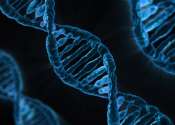How kids' brains respond to a late night up
Any parent can tell you about the consequences of their child not getting enough sleep. But there is far less known about the details of how sleep deprivation affects children's brains and what this means for early brain ...
Nov 28, 2016
0
47







